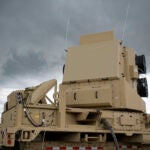
The House last week approved a measure requiring the Department of Homeland Security and the National Cyber Director to establish criteria to identify and designate certain critical infrastructure entities as systemically important for continuing national critical functions. The amendment on systemically critical infrastructure was introduced by Rep. James Langevin (D-R.I.) and adopted by voice vote. It passed the House as part the chamber's version of the fiscal year 2023 National Defense Authorization Act, which was agreed to last Thursday evening.…

 By
By 










